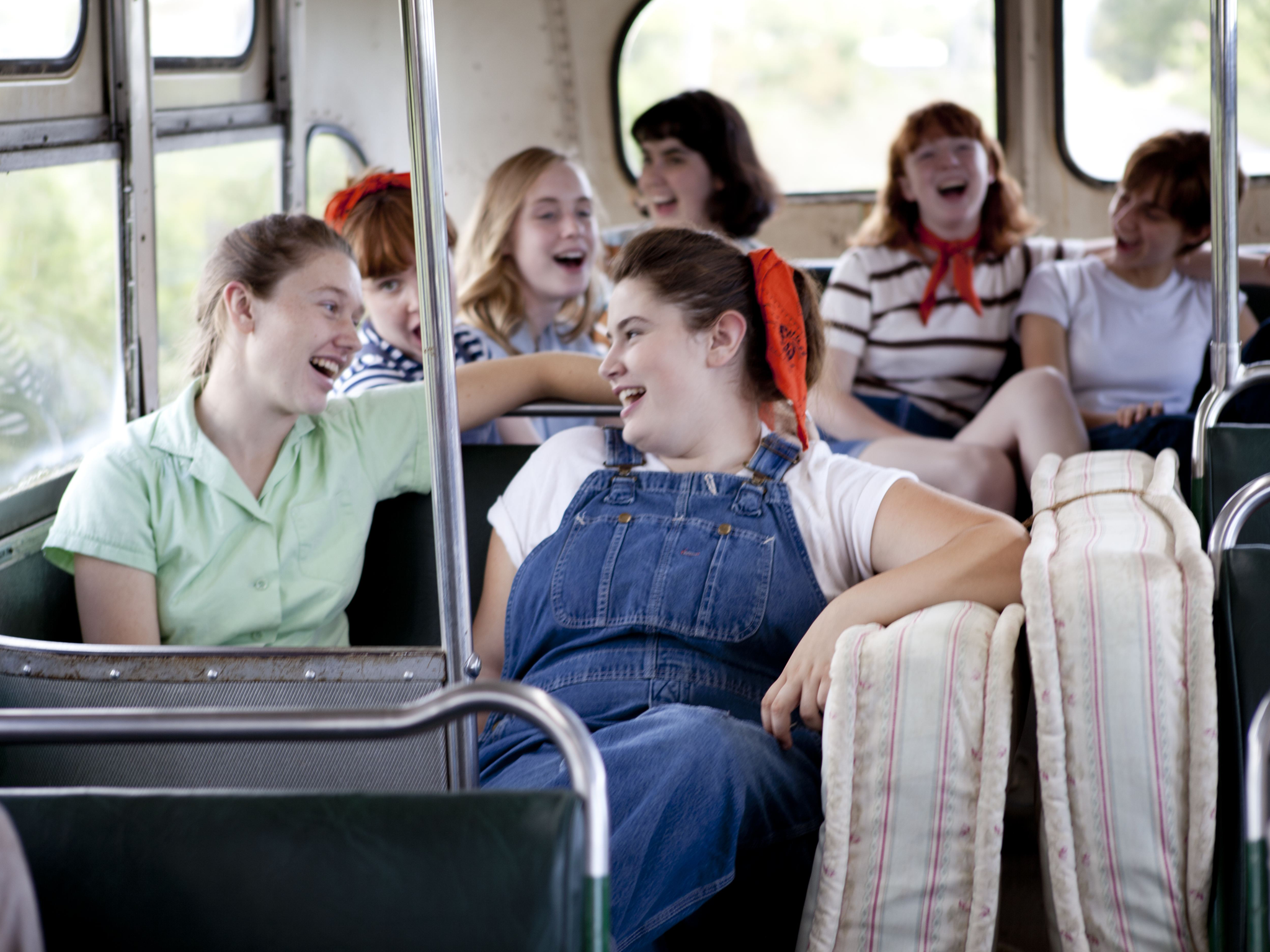Film review: Foxfire - It's the Fifties, but the chrome can't compete with the gleam of girls getting even

Here's a Riot Grrl story if ever there was one: a bunch of rebellious young women form a gang, smite their male oppressors and generally paint small-town America red. It could be the premise for something pulpy and brash, and according to reviews, that's what the 1996 adaptation of Joyce Carol Oates's novel Foxfire was, with its showcase lead for an up-and-coming Angelina Jolie. I haven't seen that film, and I suspect you haven't either, so let's agree that the new screen version of the book starts with a clean slate.
This Foxfire – subtitled Confessions of a Girl Gang – is by Laurent Cantet, the French director who won the Cannes Palme d'Or in 2008 with his terrific school drama The Class. At the very least, his Foxfire is one of the more interesting and audacious attempts by a European director to get under the skin of American culture. Cantet's film is an austere, non-sensationalist vision of what it might have been like for young women to rebel against the stifling patriarchy of post-war America. Narrated in voice-over by Maddy (Katie Coseni), the Foxfire gang's official chronicler, the story is set in 1955 in a dreary town in upstate New York.
The heroines are a group of high-school girls enduring everyday victimisation and humiliation – like the tough, misunderstood Goldie (Claire Mazerolle) and Rita (Madeleine Bisson), raped by the local boy gang. Up steps classmate Margaret, aka Legs (Raven Adamson), a radicalised intellectual who swears by the power of the proletariat, and whose guru is an old leftie ex-priest. Yes, expect something harder edged than Happy Days.
Under Legs's leadership, the girls vow allegiance, imprint themselves with tattoos and start a graffiti campaign promising righteous revenge. And they take it – on the gang boys, on an abusive maths teacher, and on Maddy's repellent Uncle Walt. Soon, they've set up a proto-feminist commune outside town and on the fringes of society. If they happen to enjoy a singsong to "Que Sera Sera", that's by way of protest against Doris Day culture – although they're still living a little bit within it.
Gang life, it emerges, isn't quite the single step to liberation that Legs dreams of. Very much of their time and society, the girls are still largely in thrall to classic American racism, voting against black gang members. Shaking off the trappings of princessy femininity on one hand, on the other they still pretty up to lay honey traps for gullible men with money. As with many a utopian community, this one's downfall is written in its early stages.
Foxfire is a thoughtful, adventurous and angry film – and while the voice-over might come across as stiffly literary in its poise, it is integral to the way that Cantet and co-writer Robin Campillo frame the story as a memoir of a lost dream. Yet the film undoubtedly suffers from a certain excess heaviness; it doesn't remotely approach the verve and crackle of youth that made The Class so mesmerising. Shot by Pierre Milon on location in Canada, the visual palette of mud and brick militantly rejects the myth of Fifties USA as a neon/chrome idyll. This America is a rural hangover from Depression – but while it's a coherent vision, it doesn't exactly make for visual lightness.
The casting is partly determined by look, to striking effect. The girls, notably pallid Maddy and big-eyed fashion plate Rita, could almost have walked out of Norman Rockwell illustrations – all the better to subvert their stereotypes – but the actors aren't always the most relaxed screen presences. And at points, the drama suffers from crippling overstatement. Males are almost exclusively irredeemable victimisers – apart from one fairly abject victim – but to have a banker and paterfamilias deliver a dinner-table tirade on the Commie threat nearly capsizes all claim to subtlety.
All in all, though, Foxfire is an intriguing attempt to channel the more sombre side of Fifties US cinema (shades of Nicholas Ray and Elia Kazan). It may not be among Cantet's finest, but it's a bold film by a bold director, a challenging take on a totemic aspect of American myth – high-school rebellion – that's rarely been treated as a political issue, still less a feminist one.
Critic's Choice
A retrospective of the great Indian master Satyajit Ray kicks off at London’s BFI Southbank. Meanwhile, Austrian provocateur Ulrich Seidl completes his new trilogy with Paradise: Hope – a tale of illicit desire on a fat farm.
Join our commenting forum
Join thought-provoking conversations, follow other Independent readers and see their replies
Comments